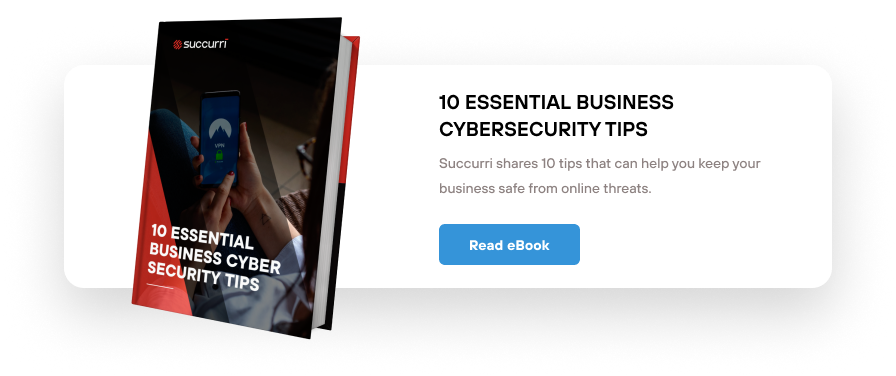As tax season rolls around, accountants and bookkeepers are busier than ever. However, it’s not just the surge in tax filings keeping these professionals on their toes; it’s also the heightened risk of cyber threats.
During this critical period, cybercriminals are increasingly targeting financial experts in hopes of accessing the sensitive financial data they handle.
The importance of robust cybersecurity measures cannot be overstated. For accountants, safeguarding client data is not just a matter of trust but a crucial aspect of professional responsibility.
Effective cybersecurity practices protect against data breaches and financial fraud, ensuring the integrity of financial information and maintaining client confidence.
As we explore the specifics, it’s clear that understanding and implementing strong cybersecurity measures is essential for every accountant and bookkeeper, especially during the vulnerable tax season.

Understanding the Threat Landscape
Common Types of Cyber Attacks on Accounting Firms
Understanding the threat landscape is crucial for accountants and bookkeepers to safeguard their sensitive financial data effectively. Here are some common types of cyber attacks that pose significant risks to accounting firms:
- Phishing Scams: These involve deceptive emails or messages designed to trick employees into revealing sensitive information, such as passwords or financial details.
- Ransomware Attacks: Malicious software that locks access to a user’s data until a ransom is paid. These can cripple an accounting firm’s operations and access to critical tax files.
- Data Breaches: Unauthorized access to an organization’s data can profoundly impact client trust and firm reputation, especially when tax-related information is compromised.
Why Are Accountants Targeted by Hackers?
Accountants are prime targets for cybercriminals due to the sensitive financial information they handle, including social security numbers and bank details. Additionally, vulnerabilities in accounting systems increase during busy periods like tax season.
This is when the volume of transactions and deadline pressures can lead to security oversights, making professionals more susceptible to cyber-attacks. Recognizing these risks is crucial for protecting both the firm and its clients.
Impact of Cyber Attacks on the Accounting Industry
Cyber attacks on accounting firms can have devastating consequences, extending far beyond immediate financial losses to affect every aspect of the business:
- Financial Losses: Cyber attacks often result in significant financial strain due to lost revenue, hefty fines, and the costs of resolving the breach and restoring data.
- Reputational Damage: Trust is a cornerstone of the accounting profession. A cyber attack can erode client confidence, potentially leading to a loss of business as clients seek more secure providers.
- Legal Consequences: Accounting firms are subject to strict data protection regulations. A breach can lead to legal actions, compliance issues, and penalties that can further impact the firm’s operations and financial health.
Best Practices for Cyber Security for Accountants
Implementing robust cybersecurity measures is critical for accounting firms to protect sensitive financial data and maintain client trust. Here are some best practices for cybersecurity in accounting:
Preventive Measures to Data Security:
- Strong Password Policies and Two-Factor Authentication: To add an extra layer of security, ensure that all accounts have complex passwords combined with two-factor authentication to prevent a data breach.
- Regular Updates and Patches to Software Systems: Keep all software, including operating systems and applications, up-to-date to protect against known vulnerabilities.
- Encryption: Use strong encryption protocols to secure financial data during transmission and storage, ensuring data remains unreadable even if intercepted.
- Access Controls and User Authentication: Implement robust access control measures, including multi-factor authentication, to limit access to sensitive information and financial systems.
Training and Awareness:
- Employee Training on Cybersecurity Threats: Regularly educate employees on identifying phishing attempts and other common cyber threats. Employees should know how to report security issues, as they are often the first line of defense.
- Regular Cybersecurity Drills and Threat Updates: Conduct frequent drills to practice response to cyber incidents and keep the team updated on the latest cybersecurity threats and trends.
- Firewalls and Intrusion Detection Systems: Deploy advanced firewalls and intrusion detection systems to monitor and control network traffic and detect potential threats before they cause harm.
Continuous Improvement and Compliance:
- Regular Audits and Security Assessments: Conduct comprehensive audits and perform penetration testing to find and fix vulnerabilities within networks and systems.
- Incident Response Planning: Develop and regularly update an incident response plan to address and mitigate the cyber-attack’s impact quickly.
- Outsourcing Cybersecurity Functions: Consider outsourcing critical cybersecurity tasks to managed security service providers specializing in the accounting industry’s needs and compliance requirements.
- Robust Data Backup and Recovery Procedures: Implement and maintain effective data backup strategies to ensure quick recovery and continuity during sensitive data loss or a breach.
By adhering to these practices, an accounting firm can significantly enhance its defenses against cyber threats, ensuring the security of its data and the trust of its clients.
Legal and Compliance Issues
Regulatory Requirements for Cybersecurity in Accounting
Adhering to stringent legal and regulatory requirements is essential for maintaining robust cybersecurity practices in the accounting industry. Various laws and regulations dictate how protecting financial data should be managed.
protecting financial data should be managed.
These include requirements for data protection, breach notification, and the implementation of security measures that comply with national and international standards.
Accountants must stay informed and compliant with these regulations to protect client data and avoid legal penalties and fines associated with non-compliance.
Compliance Strategies for Accounting Firms
Accounting firms must implement industry-standard cybersecurity frameworks, such as ISO 27001 or NIST, to effectively manage cybersecurity risks. These frameworks provide structured guidance on managing and securing information assets.
Additionally, conducting regular audits and compliance checks is crucial. These practices help firms ensure adherence to regulatory requirements and identify any vulnerabilities in their cybersecurity defenses.
By routinely evaluating their security measures, accounting firms can strengthen their defense against potential cyber threats and ensure continuous compliance with industry regulations.
Tools and Technologies to Enhance Cybersecurity for Accountants
Cybersecurity Software and Solutions
Accounting firms can strengthen their cybersecurity by using advanced software solutions. Threat detection and response tools are crucial for quickly identifying and mitigating security breaches.
Additionally, cloud-based accounting software with advanced security features provides robust data protection and automatic security updates, ensuring protection against the latest threats.
These technologies are essential components of a comprehensive cybersecurity strategy for accountants.
The Role of IT Professionals in Securing Accounting Data
The role of IT professionals is critical in securing accounting data. Many firms outsource cybersecurity tasks to specialized firms that offer expertise in protecting financial information and ensuring compliance with industry regulations.
Alternatively, implementing robust in-house IT security measures can also provide strong protection. These strategies allow accounting firms to tailor their security approach to best fit their specific needs and vulnerabilities, ensuring that client data is safeguarded against cyber threats.
Stay Secure with Succurri: Enhancing Your Cybersecurity Practices
Given these challenges, we urge all accounting professionals to remain vigilant and continuously invest in their cybersecurity infrastructure.
It is essential to embrace comprehensive training programs, update security protocols regularly, and implement cutting-edge solutions to safeguard against emerging threats.
At Succurri, we specialize in providing top-tier cybersecurity solutions tailored to the unique needs of the accounting industry. Contact us today to learn how we can help protect your firm from the growing risks of cyber threats, ensuring your operations are secure and your client data is protected.






